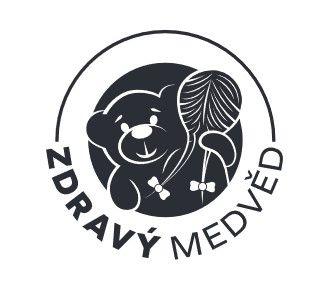L-Tyrosine
Characteristics: Tyrosine is a non-essential amino acid that is formed in the body from the essential amino acid phenylalanine. It is found in almost every human tissue and is used to produce stress hormones and neurotransmitters in the brain: dopamine, noradrenaline, and adrenaline. It is also essential for the synthesis of thyroid hormones and skin cells that produce the melanin pigment that gives skin, hair, and eyes their color. Tyrosine is a popular active ingredient in many nootropics (brain enhancers) and sports supplements, as its use is associated with improved concentration, better memory and increased athletic performance.
Absorption: L-tyrosine is absorbed from the small intestine by a sodium-dependent active transport process.
Dietary supplements: Tyrosine is available as a free amino acid or N-acetyl-L-tyrosine (NALT). NALT is more soluble in water than its free form counterpart, but has a low rate of conversion to tyrosine in the body. This means that you would need a higher dose of NALT than tyrosine to achieve the same effect, so the free form is the preferred choice.
Natural sources: Tyrosine is found in a wide variety of foods, especially cheese, where it was first discovered. In fact, "tyros" means "cheese" in Greek. Other sources are pumpkin seeds, peanuts, avocados, bananas, oats, wheat, soy, eggs, chicken and turkey, fish, milk, and yogurt.
Effect: Purported beneficial effects of tyrosine include increasing brain power, improving athletic performance, and reducing chronic fatigue and stress. Tyrosine is claimed to act as an effective antidepressant. Unfortunately, the results for these claims are inconclusive. The amino acid is also given to people with phenylketonuria because they lack the gene that makes the enzyme needed to metabolize phenylalanine to tyrosine.
Deficiency: It is rare to be deficient in tyrosine. Low levels have been associated with low blood pressure, low body temperature and underactive thyroid.
Recommended Daily Dose: There is no specific dosage for tyrosine supplementation. However, most studies use a dose of 150 mg/kg body weight.
Side Effects: Possible side effects of tyrosine supplements include stomach upset, fatigue, heartburn, or headaches. Although rare, it is possible to have an allergic reaction due to cross-contamination or the source of the amino acid.
Interactions: Tyrosine can reduce the amount and thus the effect of levodopa (a medicine for Parkinson's disease) because levodopa and tyrosine in the body compete for absorption in the small intestine. Tyrosine can increase the amount of thyroid hormone that the body produces. Tyramine is an amino acid that helps regulate blood pressure and is produced by the breakdown of tyrosine. Cheeses such as cheddar and blue cheese, cured meats or cured meats, soy products and beer contain high amounts of tyramine. Antidepressant drugs known as monoamine oxidase inhibitors (MAOIs) block the monoamine oxidase enzyme that breaks down excess tyramine in the body. Combining MAOIs with foods high in tyramine can raise blood pressure to dangerous levels.
Pregnancy: due to lack of information, use is not recommended.
Breastfeeding: due to lack of information, use is not recommended.
Warning: Migraine sufferers should not take tyrosine preparations as they may trigger migraine headaches.
Toxicity: Tyrosine is safe when taken at doses up to 150 mg/kg daily for up to 3 months.



